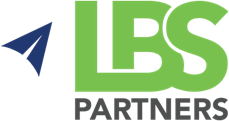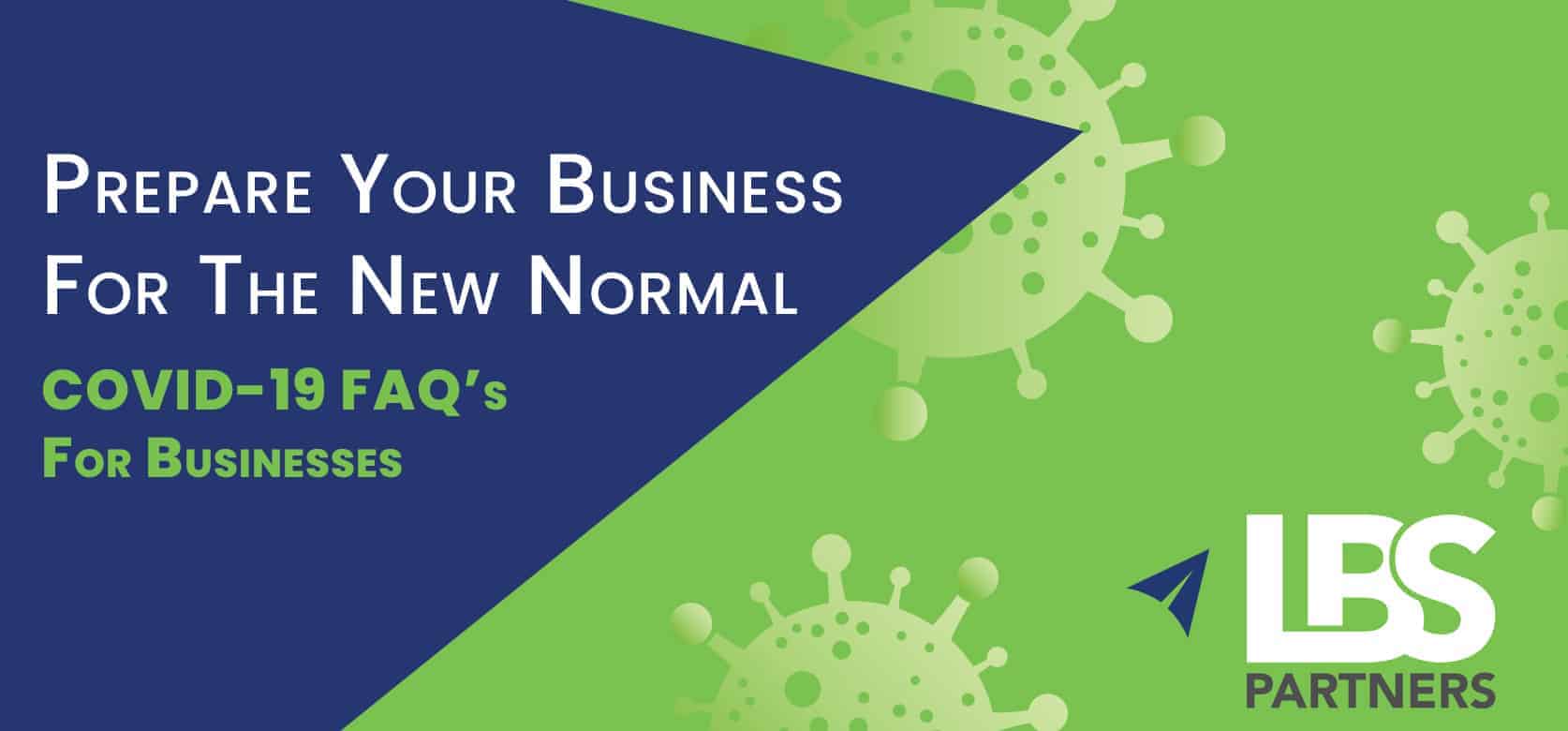Prepare Your Business For The New Normal
COVID-19 FAQ’s for Businesses
Covid-19 has had an astounding impact on our lives & the viability of businesses across Ireland. While the impact of the pandemic has been devastating for some, It has also provided new opportunities for businesses to survive and thrive. Wherever your business falls on the spectrum, one thing that holds true for all businesses operating through this crisis, is the need to have a structured plan in place to mitigate the risk to their employees, customers, and the wider community.
At LBS Partners we have been providing a custom-designed COVID-readiness programme, where we assess the existing protocols you have in place and provide an structured action plan to ensure your business is operating safely and efficiently. Through the delivery of this programme to hundreds of companies across Ireland, We have been talking with so many business owners, HR Managers and Managers across a variety of industries, all with the same questions. In an effort to spread the message far and wide and to help as many companies as possible, we have attempted to answer some of the most important Frequently asked questions below.
If you have a question that is not answered below, please do get in touch with us and we will do our best to provide assistance. We’re here to help.
1. What are some of the key areas employers should think about when forming a COVID-19 response plan for their business?
To comply with the Government Return to Work guidelines, companies should do a root and branch review of all areas of the business to reduce the risks of contamination. Signage can act as a reminder and will keep the key messages front of mind. Screens between employees, having personal space marked out – particularly in offices, use of masks where possible, one-way entry and exit to spaces that restrict social distancing, and limiting the number of face-to-face meetings are all contained in the Government’s Return to Work Safely Protocol.
The absolute key objective for an employer is to:
- Protect the physical and mental health of all employees in so far as it is possible.
- Constantly reinforce ALL the government guidelines with
- signage and regular updates.
- Implement a clear communication strategy around COVID, catering for all nationalities.
- Appoint and train one or more COVID Safety Co-ordinators to implement and manage COVID precautions.
- Ensure the response to any COVID affected employees is fast and effective.
2. What changes need to be made to existing company policies and procedures?
Changes to business practices must be clearly communicated, including through training, revised induction and wide-spread signage. Some companies are splitting work into shifts and rotating work from home/on site or in office to allow for social distancing. Others are doing temperature checks, health sign-offs and increasing hand washing facilities.
The challenge is that one contamination can spread fast if even a single employee gets infected. The new COVID preventative measures should be added to the company’s Health & Safety policy and procedures. Where possible face-to-face meetings should be held remotely. If this is not practical, a space which allows for social distancing should only be used for a maximum of 2 hours.
3. What pre-return-to-work steps should be put in place and completed by both employers and employees?
The government guidelines on COVID-19 work policy are extensive and cover all the steps that companies need to take. Companies should walk in the footsteps of their employees and examine their daily activities to compile an index of all potential contamination risks.
Most companies have taken or will take many different precautions, including the provision of PPE and following ECDC guidelines on the disinfection of potentially contaminated areas. However, workers also need to take responsibility for their own health and safety and those around them by remaining vigilant and practicing the highest standard of hygiene.
4. What guidelines/procedures should be put in place when dealing with a suspected case of COVID-19 in the Workplace?
Employees should be encouraged to stay home or go home immediately if they have symptoms of Covid-19. But dedicated staff often resist taking sick days which presents a problem where they may infect others. Given the threat this pandemic presents, managers should not hesitate to send home employees who present with COVID-19 symptoms.
Likewise, employees or visitors who are symptomatic or at high risk for COVID-19 should be kept separate from staff and helped with arrangements to leave the workplace and obtain medical evaluation while minimising their public exposure. For example, they should avoid public places and public transportation, and, ideally, should stay six feet away from others unless they are wearing a mask. There needs to be a very clear policy of what to do and to whom to report suspected cases of infection. A log should be kept of all the details around suspected cases.
5. How can companies ensure that employees are adhering to the COVID-19 guidelines?
Companies and employees must work together in this regard – there is a shared responsibility to ensure the health and wellbeing of everybody is protected.
It is good practice to appoint a COVID-19 coordinator whose responsibility will be to ensure that all efforts are being made by the company and the employees to reduce risk contamination. Asking employees for their suggestions will help to heighten awareness and increase adherence.
All guidelines and signage should be in all the different languages, if you have employees from different nationalities working in your company. All signage needs to be as visual as possible. Non-adherence or blatant disregard for the safety measures should be treated extremely seriously as it threatens the lives and livelihoods of all employees.
6. What policies & procedures need to be implemented with respect to business travel and visitors?
The key measures of social distancing and proper hand hygiene are and will be the best preventative measures in this regard. Travel within Ireland is now fully permitted but social distancing rules as it relates to passengers still applies. Foreign travel, however, still faces some restrictions. The key takeaway here is that foreign travel needs to be avoided as much as possible, maintaining social distancing and good hygiene around hand washing are the main preventative measures.
7. What are the key Health & Hygiene measures that an employer must implement to ensure safety of employees?
There are two key aspects to the prevention guidelines. First, identifying all the areas of risk for infection and second, and more difficult, is the implementation of programs to mitigate the risks and to sustain these for as long as COVID-19 is a health risk.
We are hearing from clients that the biggest challenge is putting a structure around their COVID -19 prevention plans. Companies are busy coping with the shock of the pandemic and trying to serve their customers and are finding it difficult to set aside the necessary time to implement an effective COVID 19 prevention plan.
It must be remembered that the government have given powers to the HSA to effectively shut companies down, so implementation of a plan is crucial for both the employees and the company.
8. Companies that are now back at work, how do they know if they are in full compliance with the government guidelines?
It depends on how they approached implementing the prevention plans in the first place. Companies that have already introduced a prevention plan should consider having the plan independently audited to make certain that they have done everything within their power, and in accordance with guidelines, to reduce the risk for their employees.
9. Is there funding available to support companies implementing or validating their Get Back to Work programmes?
Enterprise Ireland and IDA are providing a range of funding options/supports to companies. The Business Continuity Voucher provides a €2,500 support to assist companies to persevere through the COVID-19 crisis and will cover the cost of an assessment to ensure compliance with the government guidelines.



